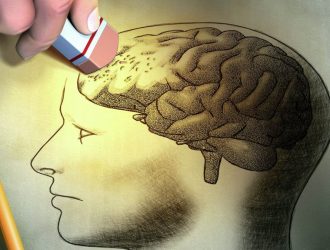
There is an interesting relationship between your mood and your microbiome — let’s talk about it.
Microbiome and depression
When a person is in a state of chronic anxiety or depression, their microbiome changes — and their breath changes too.
This is why a person with chronic stress, anxiety, or depression can develop halitosis or bad breath. These mood changes can also cause an increased risk of periodontal infections and disease.
On the flip side, when a person takes an antibiotic or antifungal and wipes out their microbial population, it can dramatically affect their mood and breath. Psychosis, depression, anxiety, and panic attacks are all potential side effects of antibiotics.
There is a spike in cortisol when a person experiences stress and anxiety. Cortisol suppresses the diversity of microbes you have and paralyzes your immune system. Chronic elevation of cortisol destroys your microbes and affects your breath.
Friendly bacteria
Your body has a complex group of friendly bacteria, yeast, and fungus that all work together. You need the right ratios of them to maintain a healthy body. Sauerkraut and kefir are fantastic foods you can consume to help promote a healthy ratio of bacteria, yeast, and fungus.
Overall, your mood can affect your microbes, and your microbes can affect your mood. The quality of your breath is directly related to the balance of your microbes.
What to try for anxiety and depression
There to try for anxiety and depression:
- Take vitamin D (for depression)
- Take vitamin B1 (for anxiety)
- Get outdoors
- Exercise
- Do physical work outdoors
- Try indoor rock climbing
- Change your diet (get on the Healthy Keto diet)
- Do intermittent fasting








Was diagnosed with anxiety at the beginning of this year. I refuse to take the pills. I’ve managed to do it on my own, however some days are tougher than others. For anyone going through this, just know that you can beat it. Put that in your mind. I know it’s easier said than done, but once you get control of your life & start living and not focusing on the symptoms that anxiety brings. Start off one week walking for 30mins. Make you a playlist and just walk. I just hope everyone who is going through this gets better.
The first ‘morning after’ my boyfriend (now deceased husband) and I spent together he was amazed lol, I didn’t have morning breath. When he got sick, then suffered six years of one terminal illness after another my stress, anxiety, depression and deep sadness was a nightmare. Still is with him gone, out of nowhere I will breakdown with one awful emotion or other sometimes all three hit me at once even tho he’s been gone many years. But through it all, then and now I have never had bad breath. I feel lucky because bad breath is a pet peeve of mine, oral hygiene is a big deal. I cannot talk w/ someone with bad breath it really is a turn off. I always assumed is was laziness and very poor hygiene but now I will be more understanding
I used to have really bad breath and keto and IF changed that. But when i’m having a tough time my breath gets bad but clears up the minute conditions change. Kefir and sauerkraut are my daily medicine and not watching the news really helps
I ditched toothpaste and mouthwash for water and baking soda as well as lemon juice and baking soda to strenghten enamel. Going baking soda only feels very self conscious because i’m not sure if my breath is bad or not, this information helps!